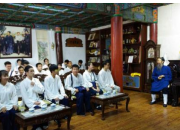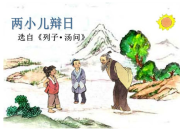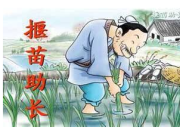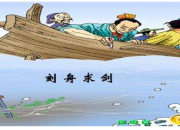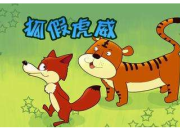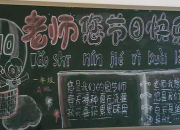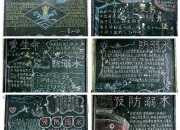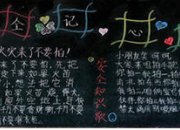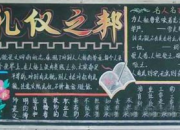介绍清明节七年级英语作文
时间:2021-08-31导语:清明节,又叫踏青节,按阳历来说,它是在每年的4月4日至6日之间,正是春光明媚草木吐绿的时节,也正是人们春游的好时候,所以古人有清明踏青,并开展一系列体育活动的的习俗。下面小编整理了介绍清明节七年级英语作文,欢迎参考借鉴!
介绍清明节英语作文
Qing Ming is a time to remember the dead and the dearly departed. More important, it is a period to honour and to pay respect to one's deceased ancestors and family members. Because it reinforces the ethic of filial piety, Qing Ming is a major Chinese festival.
Literally meaning "clear" (Qing) and "bright" (Ming), this Chinese festival falls in early spring, on the 106th day after the winter solstice. It is a "spring" festival, and it is an occasion for the whole family to leave the home and to sweep the graves of their forebears. Chinese being practical people this sweeping of the graves is given an extended period, that is, 10 days before and after Qing Ming day. Among some dialect groups a whole month is allocated.
清明节是一个时间来记住死者和代价离开。更重要的是,它是一个时期的荣誉和尊重自己的祖先和家庭成员。因为它加强了伦理的“孝”,清明是一个重大的中国节日。
字面意思是“明确”(清)和“光明”(明),这属于中国艺术节在初春,冬至后的第一百零六天。这是一个“春天”的节日,它是为整个家庭的离开家去祭扫先人的场合。中国人民正在这个实际清扫的坟墓是长时间,这是10天,清明前后。一些方言群体之间分配到一整个月。
介绍清明节英语作文
Ching Ming festival is a traditional Chinese festival, has a history of two thousand five hundred years; Its main traditional cultural activities are: grave, outing, cockfighting, swing, play mat, pull hook, tug-of-war), etc. The members (the grave), is very old. Tomb-sweeping day, as a traditional culture, it is a full of mysterious colorific festival, on this day, the pedestrians on the road are missing people who died, to express their respect and grief!
Ching Ming festival, in hainan many locals call it the "qingming festival". Middle age the qingming festival is very important, if not as a legal holiday, they will also take time to go home "qingming festival". This suggests that the qingming festival has become a culture, become a man of the late express a way of missing loved ones.
Qingming festival, is a kind of Chinese traditional culture recognition and respect. Qingming festival is very important in the ancient tradition of a festival, is also the most important festival of festivals, was the day of ancestor worship and the grave. This grave, the shrine of the dead an activity. The han nationality and some minority are mostly in the tombs. According to the old tradition, the grave, people to carry goods such as especially fruit, paper money to the grave, will be food for offering in the family tomb, then paper incineration, new soil up to the grave, fold a few branches pale green branches ed in the grave, and then salute kowtow worship, finally eat especially home. The tang dynasty poet tu mu's poem "qingming" : "rains fall heavily as qingming comes, and passers-by with lowered spirits go. Restaurant where? Boy pointed apricot blossom village." Write the tomb-sweeping day is special atmosphere. Until today, tomb-sweeping day ancestor worship, mourning the late relatives customs still prevail. And the more brought to the attention of the people.
Chinese is influenced by its culture, make clear the Chinese memorial ancestors festival. Ancestor worship in qingming festival people are back, this is a kind of culture, a kind of habit.
清明节是中国传统的节日,有两千五百年的历史;它主要的传统文化活动有:上坟、踏青、斗鸡子、荡秋千、打毯、牵钩(拔河)等。其中上坟(即扫墓)之俗,是很古老的。清明节,它作为传统文化,是个布满神秘色彩的节日,在这个日子里,路上的行人都在思念去世的人们,表达对他们的尊重与哀思!
过清明节,在海南的许多本地人中称其为“做清明”。中年人对清明节十分看重,即使不是作为法定假日,他们也会抽空回老家“做清明”。这说明清明节已经成为了一种文化,成为了一种后人对已故之亲人表达思念的一种方式。
清明,是中国传统文化的一种认可及尊重。清明是古人传统习俗中十分重要的一个节日,也是最重要的祭奠节日,是祭祖和扫墓的日子。扫墓俗称上坟,祭奠死者的一种活动。汉族和一些少数民族大多都是在清明节扫墓。按照旧的习俗,扫墓时,人们要携带酒食果品、纸钱等物品到墓地,将食物供祭在亲人墓前,再将纸钱焚化,为坟墓培上新土,折几枝嫩绿的新枝插在坟上,然后叩头行礼祭拜,最后吃掉酒食回家。唐代诗人杜牧的诗《清明》:“清明时节雨纷纷,路上行人欲断魂。借问酒家何处有?牧童遥指杏花村。”写出了清明节的非凡气氛。直到今天,清明节祭拜祖先,悼念已逝的亲人的'习俗仍很盛行。而且越加受到人们的重视。
中国人受自身文化的影响,使清明成为了国人追思先祖的节日。在清明人们纷纷回乡祭拜祖先,这已是一种文化,一种习惯。
介绍清明节英语作文
Today is April 5, ching Ming festival.
My father and I went back to the countryside hometown for ancestor's grave. We came to the ancestral grave, dad with his shovel the tombs to repair, and then put the tribute to the grave, took me to the ancestors on three head, got up and down a bowl of wine, spilled a circle around the tombs. In the grave, we walk in the mountains You'll also be able to contribute, on a mountain high, there are lush trees, there are green grass, there are clear lakes, beautiful!
On the way home, winter jasmine, plum and cherry blossoms are scrambling to in full bloom, fragrance of flowers floating around, a lot of visitors to take photos in front of the flower, laughing faces as beautiful as flowers, how happy ah! Dad told me: tomb-sweeping day is our memory of martyrs, ancestor worship festival, festival is blooming, play for an outing. He told me the martyrs brave fight, fear no sacrifice revolutionary story. I listened to the very touched, it is our predecessors bloody sweat, hard working, just have our good life today, so we should cherish the happy life today, study hard, healthy growth, grow up contribution strength, serve the country!
今天是四月五日,清明节。
我和爸爸回到了乡下老家给祖先上坟。我们来到了祖先的坟前,爸爸用铁锨把坟茔修缮了一番,然后把带来的贡品放到坟前,带着我给祖先磕了三个头,起身倒了一碗酒,围绕坟茔洒了一圈。上完坟,我们就在山里踏青游玩你也可以投稿,高高的山上,有茂盛的树林,有绿绿的青草,还有清澈的湖水,美丽极了!
回家的路上,迎春花、梨花、樱花争相盛开,花香四处飘荡,好多游人在花前拍照留影,一张张笑脸和鲜花一样美丽,多么幸福呀!爸爸告诉我:清明节是我们缅怀先烈、祭拜祖先的节日,也是春暖花开、游玩踏青的节日。他还给我讲了先烈们英勇战斗、不怕牺牲的革命故事。我听了很感动,正是先辈们流血流汗、艰辛创业,才有我们今天的美好生活,所以我们要好好珍惜今天的幸福生活,努力学习、健康成长,长大了贡献力量、报效国家!
【介绍清明节七年级英语作文】相关文章:
1.介绍清明节的作文
6.介绍清明节作文



